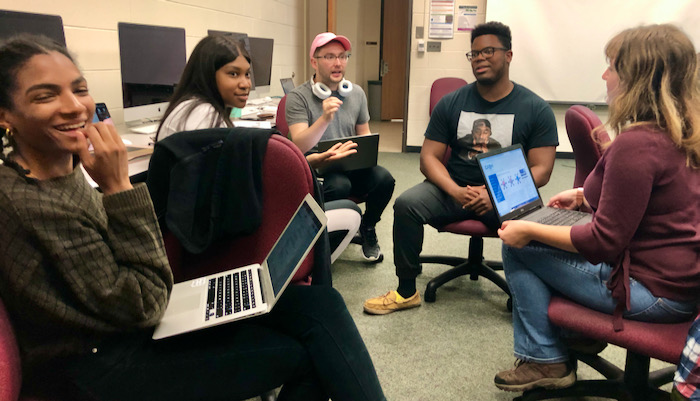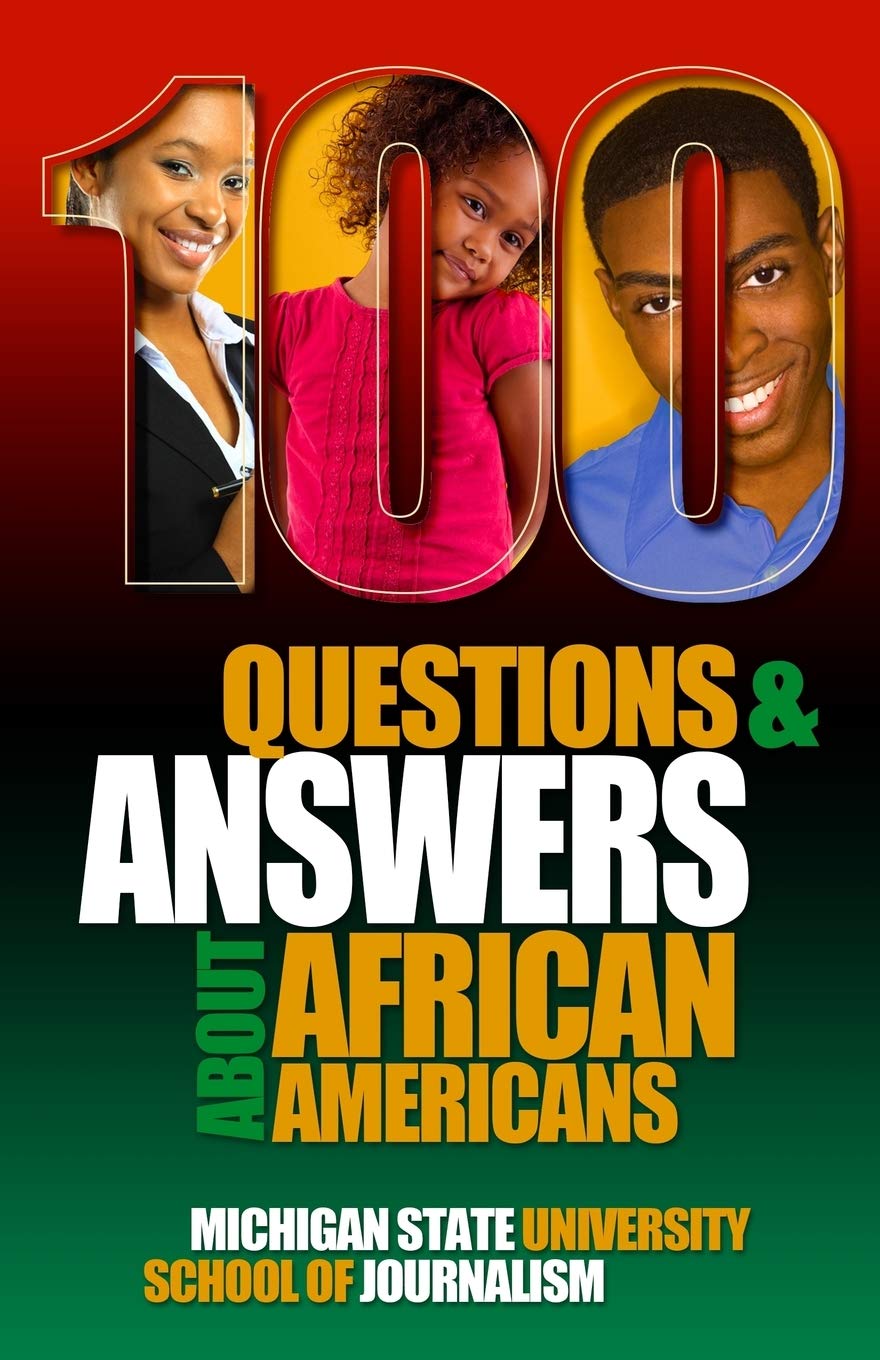Thanks to Michigan State University Bias Busters, 17 government offices are more welcoming to minorities

For more than a decade now, the Michigan State University School of Journalism’s Bias Busters program has partnered with Front Edge Publishing to produce a series that now includes 20 books that answer the most frequently asked questions about ethnic, racial, religious and other groups within our diverse population. From the start of this project, our goal has been to encourage cultural competence that is the best way to combat the rising tide of bigotry against minorities.
Now, we’re all celebrating a great example of that outreach as these student-produced guides are now helping the Michigan Department of Health & Human Services with its work.
A broad selection of these books were ordered by the state agency for 17 of its offices across the state of Michigan.
Leaders of the department invited staffers in each area to select the guides that would be most beneficial in their communities.

Among the top titles chosen by these regional offices were:
- 100 Questions and Answers About African Americans
- 100 Questions and Answers About Hispanics and Latinos
- 100 Questions and Answers About Immigrants to the U.S.
- 100 Questions and Answers About Veterans: A Guide for Civilians
- 100 Questions and Answers about Gender Identity
- 100 Questions and Answers About Sexual Orientation
- 100 Questions and Answers About Gen X Plus 100 Questions and Answers About Millennials
If you would like to see all 20 of our titles, so far, here’s a link to the Amazon Bias Busters Kindle page.
For yet another perspective on this project, here’s a column Front Edge’s Susan Stitt wrote in July 2022, when we released the new guide that we prepared with input from Sikh Americans.
Flexibility in Publishing Made This Possible
Front Edge’s vision for book publishing, as outlined by founding editor David Crumm, is “that all publishing depends on individual readers—and local communities.” Front Edge publishes flexibly. It believes the information in a book need not be constrained between covers. Books can be print or digital, reorganized and recombined.
This means a guide about police officers was published for police agencies everywhere in the United States—and in a custom MSU edition that contained information unique to the experience of MSU students and police. The editor was MSU Police and Public Safety Capt. Florene McGlothian Taylor. Few departments could afford to publish their own guides, but the MSU Police department was able to distribute its own specialized book, because of the flexible process Front Edge provided to create a “short-run” edition of the book just for MSU.
When the Education Writers Association needed a resource for journalists, 250 questions were drawn from various Bias Busters guides, reconstituted, rearranged and edited into the new diversity guide especially designed and printed for education writers.
The double Bias Busters guide on Gen X and Millennials, has two “front covers” with each half of the book reading toward the center where the text “flips” from one guide to the other.
And now, we have flexibility in creating regional diversity libraries
The Michigan Department of Health & Human Services did not wait for someone else to package the books into several sub-series. Officials simply asked their colleagues in 17 offices across the state to select which books would be most useful for their staffs and in those communities.
That’s how we created a custom-sorted bundle for each region.
The lesson is: Any community organization, agency or company can build its own series. How about your congregation? Are you interested in developing a great sensitivity toward minorities in your area? Consider adding a selection of these books to your congregational library—or starting a community-outreach class that specializes in cultural competency. Order your own hand-picked selection of these guides and you’ve got a tailor-made approach to your community.
There are so many ways the Bias Busters project has made the world a better place. Among other benefits, this is gratifying for college students to know their work is being used to help people who also help people. Flexible publishing makes that possible.
Got questions? Want us to consider a new guide?
For information or to share your ideas on flexible publishing, email Bias Busters series editor Joe Grimm at [email protected].
Or contact the folks at Front Edge Publishing.